Roshni Kavate (IN/US) & Violeta Ortega Navarrete (MX)
Roshni Kavate (India/US) and Violeta Ortega Navarrete (Mexico) are an artist duo. Their work focuses on recognizing ancestral knowledge and their languages as pathways for healing the consequences of capitalism.
These languages often manifest as processes—in their case, the slow creation of textiles that give form to intangible events, with the power to restructure and heal them.
As artists from ancestral and indigenous cultures of India and Mexico, they are developing a new artistic language that unites their bodies, memories, and environment.
Through their practice, they reclaim textile making as a form of archiving memories, healing, self-care, and community building. They employ ancestral techniques including weaving and dyeing with natural materials such as indigo and marigold plants, using handwoven textiles and materials like foraged seaweed, local wool, and recycled natural materials.
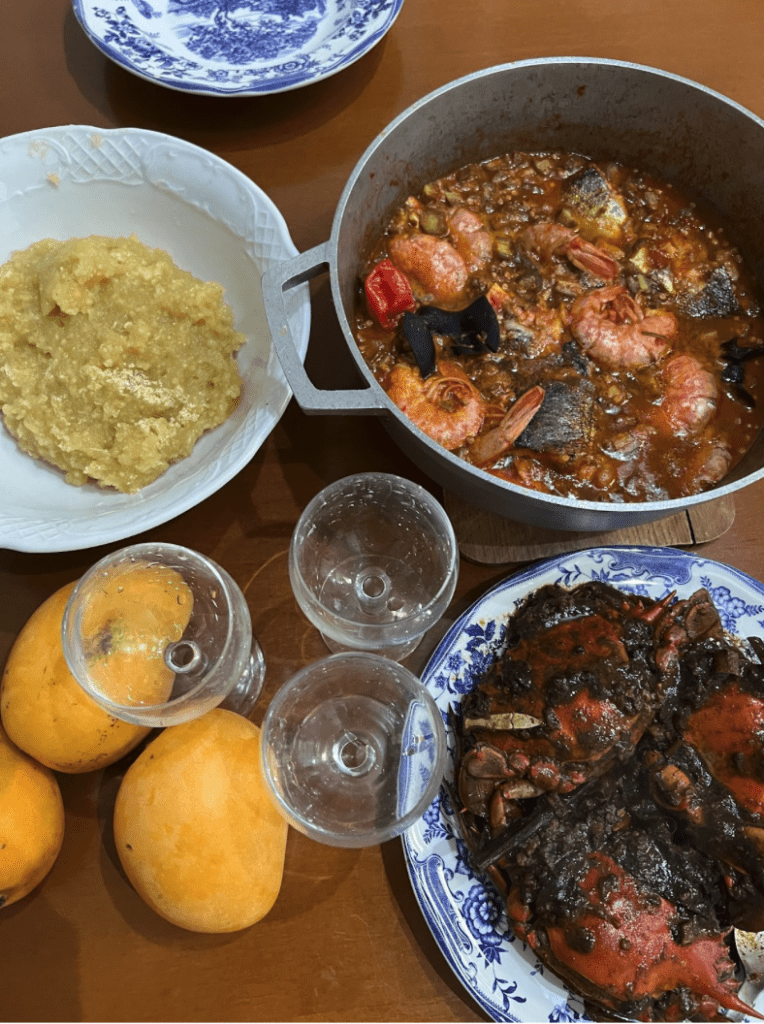

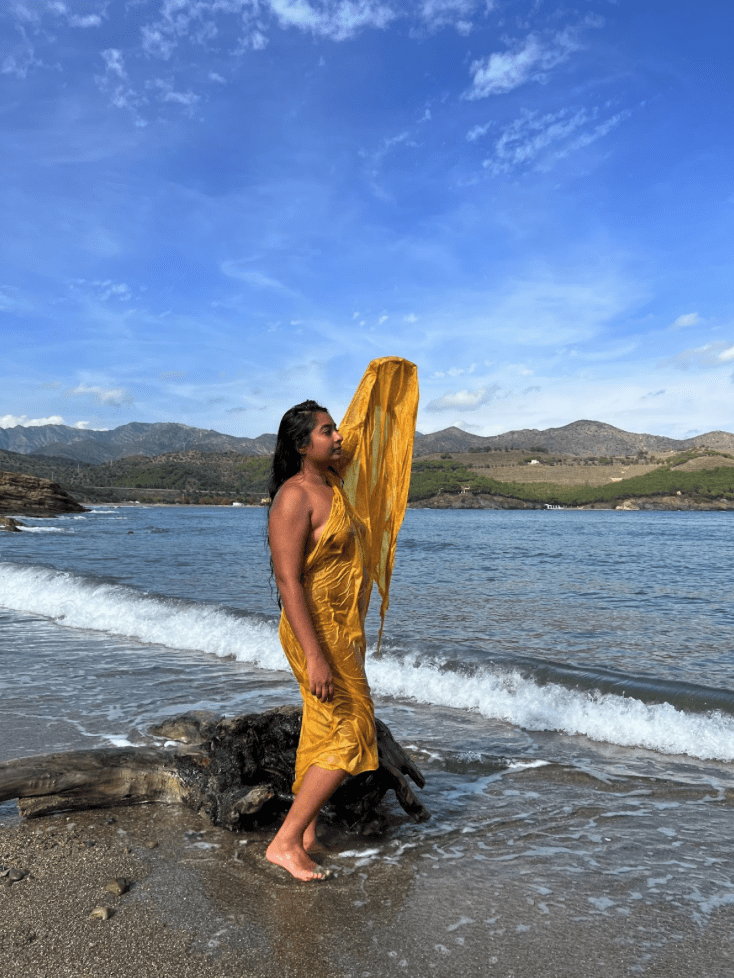
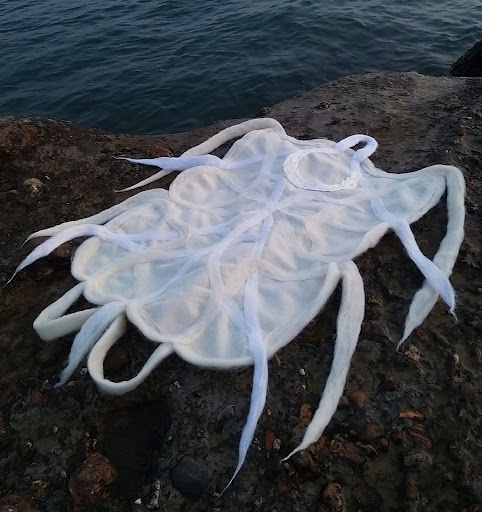
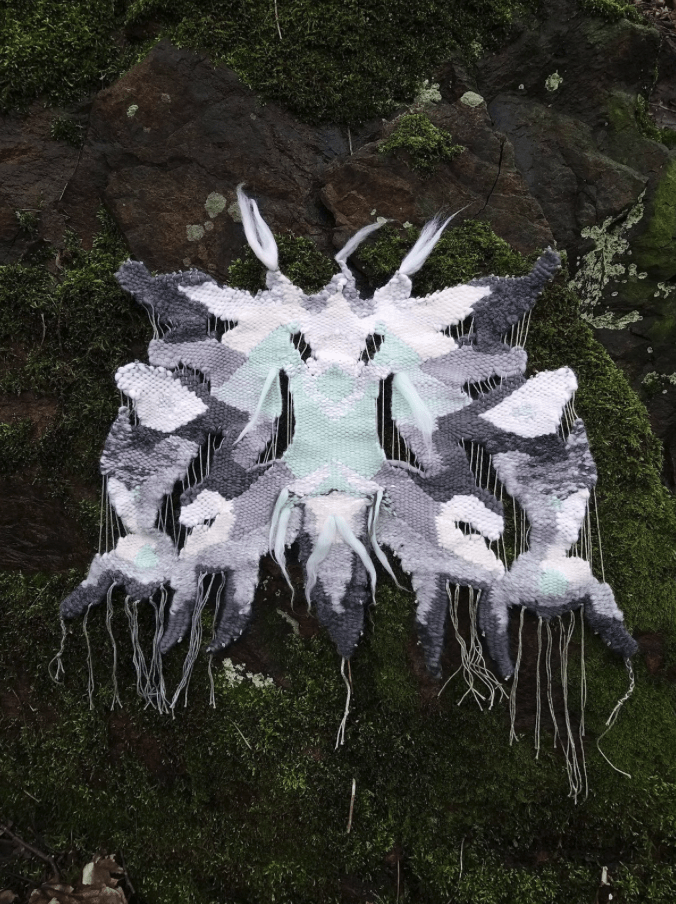
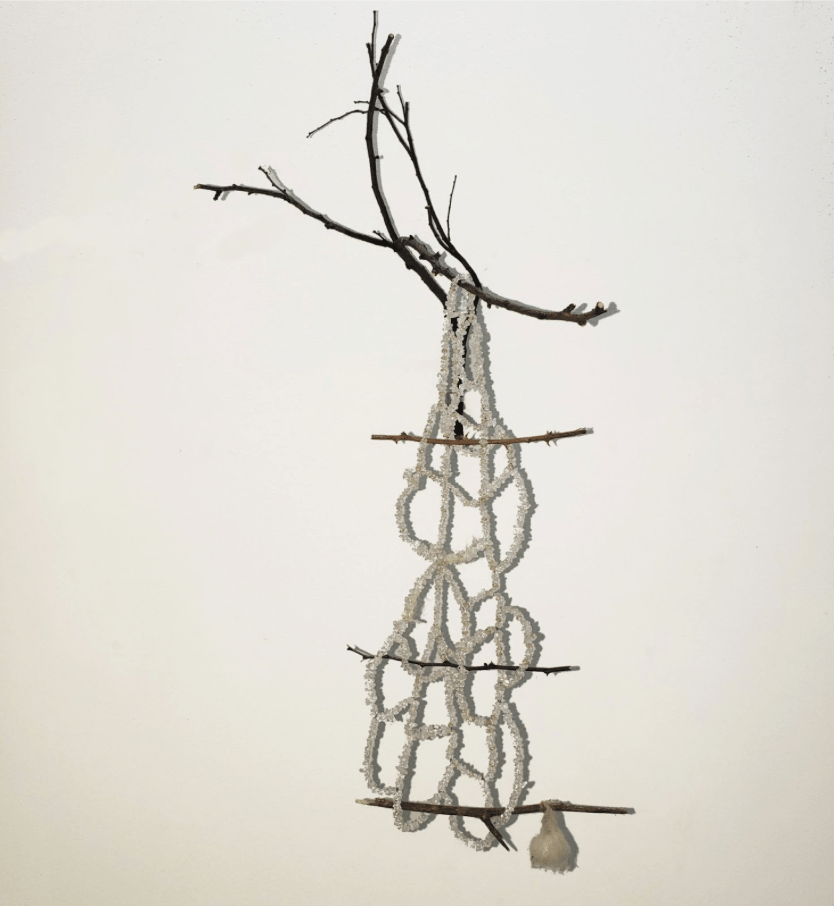
VIOLETA ORTEGA NAVARRETE studied Hispanic Literature at the Universidad Autónoma de México (UNAM) and Textile Design at the School of Design of the Instituto Nacional de Bellas Artes y Literatura (INBAL). She has specialized in artisanal textile techniques such as tapestry weaving, gobelin, felting, embroidery, flat weaving, and knitting, among others. She employs these traditionally feminine mediums to explore inner worlds, contemplation, and self-knowledge through the act of weaving and textile experimentation. In 2020, she co-founded Islera, an independent space for artistic experimentation and cultural cooperation located in the La Merced neighborhood in Mexico City.
Instagram: https://www.instagram.com/violeta_orteganavarrete/
ROSHNI KAVATE is a multidisciplinary artist emerging from a lineage of South Indian artisanal weavers whose practice intricately weaves investigations of memory, ecology, and diaspora. Trained initially as a palliative care nurse, Kavate’s work explores the profound cartographies of grief, belonging and the body through textile, printmaking, and video installations and immersive research, drawing from ancestral technologies of oral and gestural memory. Her artistic methodology—which she terms “nostalgic futurism”—reimagines postcolonial narratives through whimsical and contemplative explorations of belonging, care and creating living archives that challenge traditional representations of cultural identity.
Roshni is also part of the Barcelona based collective Mango and Okra, the collective engages in radical inquiry and reimagination of diasporic journeys through culinary storytelling and documenting forgotten realities and creating post-colonial futures. It’s a collaboration between Agnes Essonti Luque, Lizette Nin and Roshni Kavate. Her work has been exhibited internationally, including notable presentations at MACBA Cuina in Barcelona, the Off Dakar Biennial, and spaces across Los Angeles and San Francisco. She is a studio artist at Tangent Projects studios in Barcelona.
Instagram: instagram.com/roshnikavate
Website: www.Cardamomandkavate.com
The residency program is supported using public funding by the Slovak Arts Council. The Slovak Arts Council is the main partner of this project. The Residency program is also supported by Mesto Košice.
